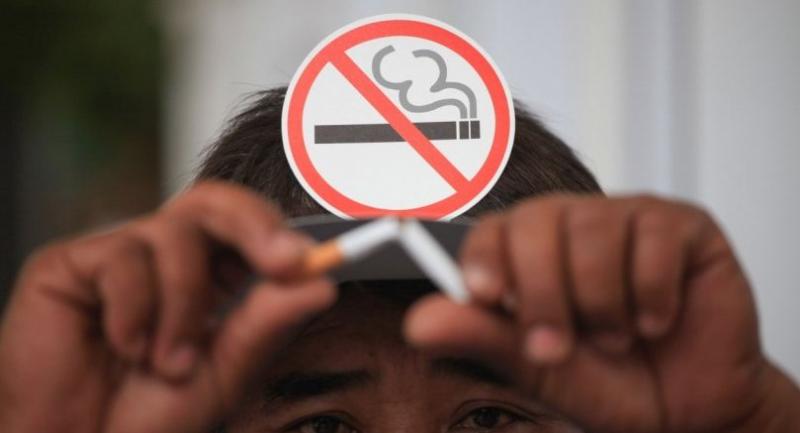‘Stop smoking’ plea as habit kills 50,000 Thais every year

Smoking kills more than 50,000 people in Thailand each year, about a third of them before the age of 60, it was revealed on Maonday as health experts and anti-smoking campaigners urged people to give up the expensive habit.
“These deaths mean the loss of breadwinners for so many families too,” Action on Smoking and Health Foundation Thailand secretary-general Prof Dr Prakit Vathesatogkit said at an event marking World No Tobacco Day, which falls tomorrow.
The theme of this year’s special day is “Tobacco – a threat to development”.
Prakit, Disease Control Department director-general Jedsada Chokdamrongsuk, World Health Organisation representative to Thailand Dr Daniel Kertesz and several other anti-smoking campaigners joined forces at yesterday’s event to encourage people to say “no” to cigarettes.
Tobacco consumption is very high in Thailand. One in five adults and one out of six youths smoke, amounting to almost 11 million smokers.
“Smoking is a threat to health and efforts to combat poverty,” Prakit said.
Tobacco is a key risk factor for many diseases, including cancer, heart disease, diabetes and tuberculosis – illnesses that put a financial strain on families and drain the government’s budget for universal health coverage.
According to 2014 figures, about 3.1 million Thais earned no more than Bt6,000 a month but spent more than Bt7.6billion a year on cigarettes.
Prakit lamented that with hard-earned income being spent on cigarettes, families’ nutrition and children’s education were being adversely affected.
On a positive note, the World Health Organisation (WHO) has commended Thailand’s recently passed Tobacco Products Control Act, which imposes stricter control on the sale of cigarettes.
For example, it is now illegal for shops to sell cigarettes in quantities less than a full packet. A complete ban on the sale of tobacco has now been implemented at pharmacies, medical and educational institutions, amusement parks and zoos.
“By taking robust tobacco control measures, governments can safeguard their countries’ futures by protecting people’s health, generating revenues to fund health and other social services, and saving their environments from the ravages tobacco causes,” Kertesz said.
